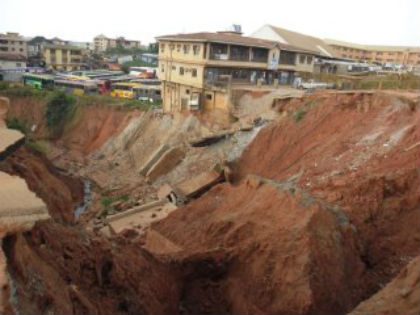To tackle soil erosion, the Soil Science Society of Nigeria (SSSN) on Thursday, December 5, 2019 called on the Federal Government to establish a Soil Remediation Fund which should attract 30 percent of the country’s ecological funds.

The body also urged the government to keep faith with the action plans under the Land Degradation Neutrality Target Setting Programme (LDN TSP) which stipulated that over N194 billion be deployed to restore degraded lands in the country.
President of SSSN, Prof. Bashiru Raji, presented the group’s position in Ilorin, Kwara State, at a press conference to mark the World Soil Day.
The theme of the 2019 World Soil Day is “Stop Soil Erosion, Save Our Future.’’
Raji, who noted that soil erosion and desertification were the two well-known causative factors of land degradation, added that their effects on landscape were devastating.
He said: “The danger posed by soil erosion is real and presents the greatest threat to food security, poverty eradication and environment health and yet, there is no community in Nigeria that is spared of one form of soil erosion or the other.
“Soil erosion though a natural phenomenon is accelerated through anthropogenic causes like overgrazing, removal of vegetation cover due to farming activities or deforestation and construction activities among others.
“However, it is important to note that soil erosion affects food security by general decrease in soil fertility and diminution of cultivable land as a result of the occurrence and expansion of gullies.
“Soil erosion also reduces the capacity of the soil in its provisioning services of fibre, raw materials and support for infrastructure.”
The society, he pledged, would work with the Nigerian Institute of Soil Science to evolve a National Soil Policy for the sustainable exploitation of the country’s soil resources.
Raji, however, stressed the need to continuously build human capacity and infrastructure in the agricultural sector through adequate funding of Colleges of Agriculture and other agricultural institutions dedicating a substantial percentage of TETFund to the sector.
He also commended the Federal Government for its “giant and visible strides and gains in the agricultural sector in the last four and half years.”
Raji pledged the society’s readiness to partner with NGOs and CBOs to continue to create awareness on the effects of unsustainable use and misuse of the fragile ecosystem as they affect the capacity of the soil to render valuable services.
By Suleiman Shehu
